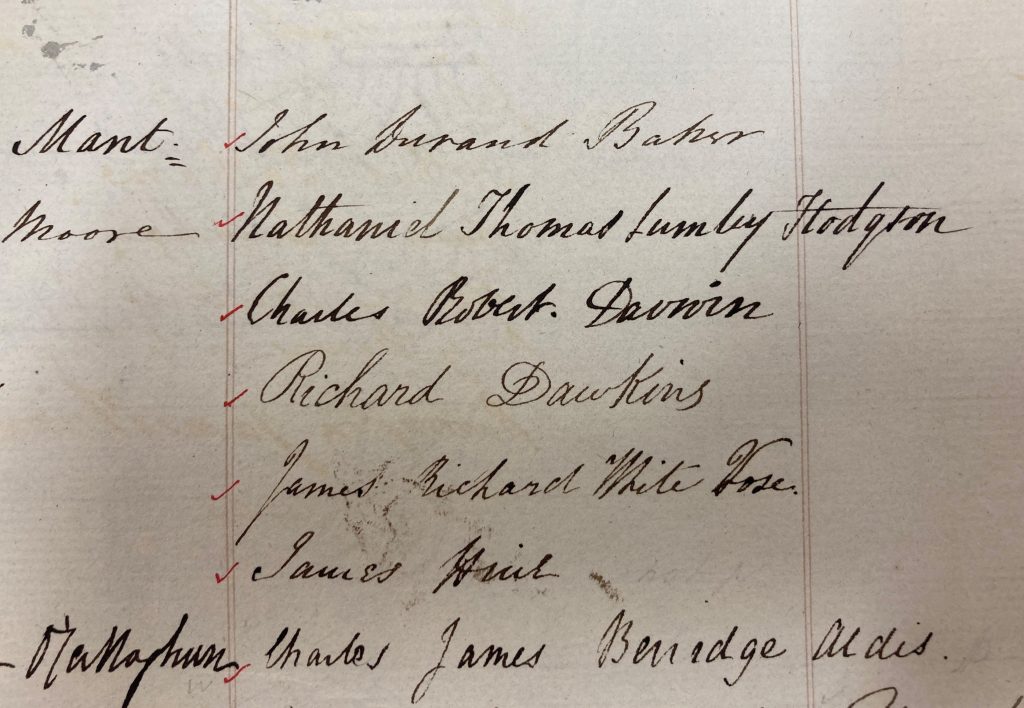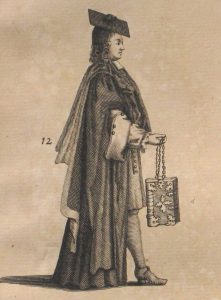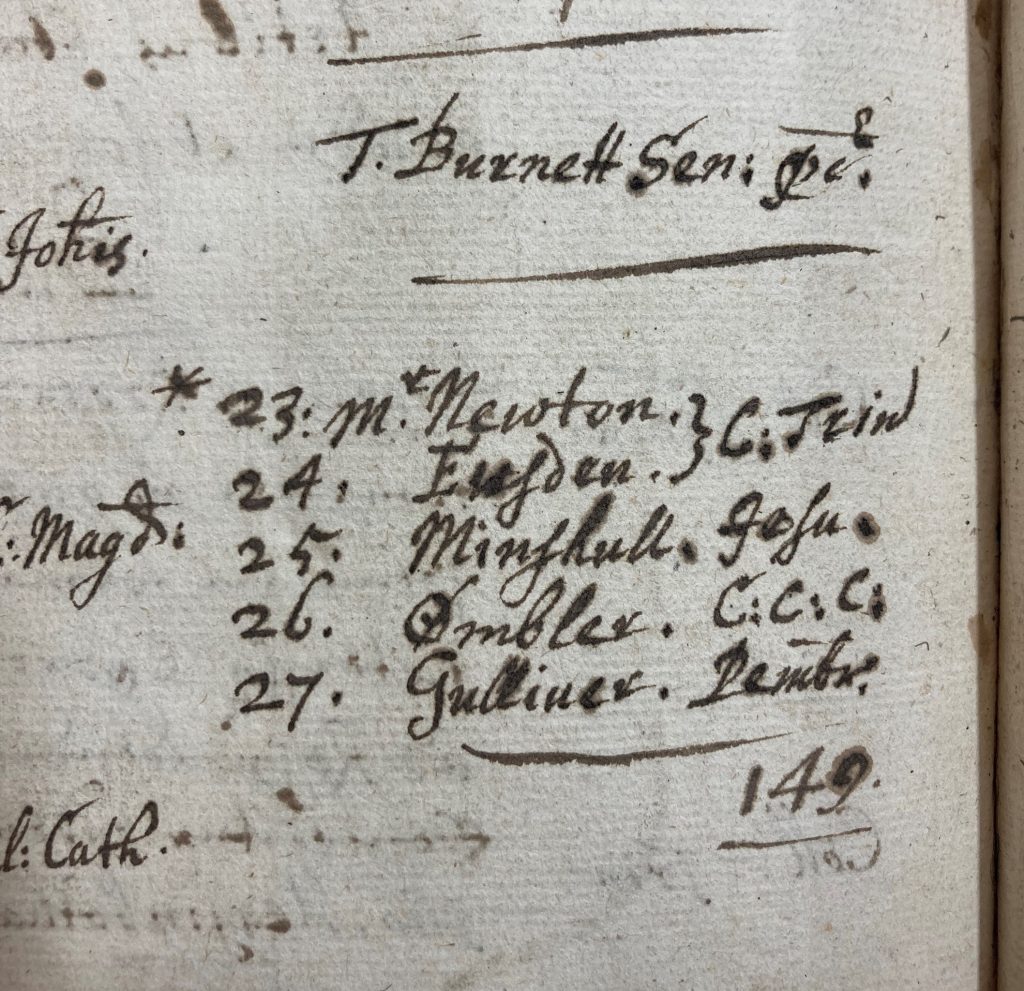
Becoming Vice-Chancellor …
Professor Deborah Prentice, the new Vice-Chancellor, assumes the duties of office on 1st July and will be formally admitted at a Congregation of the Regent House (that is, a meeting of the University’s governing body) in the Senate House on the 5th. The role is old – medieval office-holders were originally empowered to act for the absent Chancellor – but she is new. The third woman and first American, she is also the first incumbent in modern times without prior involvement in the University as student or member of academic staff.
The first step in formally joining the University is matriculation: the process of registration as a member. At one time matriculation extended to College and University servants as well as to students and it still does to academic staff and administrative officers from elsewhere. For many centuries, matriculation was conditional on the taking of oaths or making of declarations of allegiance to the crown and of assent to the established religion. The term comes from the medieval requirement that undergraduates enter their names on the matricula (Latin for roll) of an academic Master, later of the University. Until 1962, matriculation was performed publicly, but it now entails only the signing of a form by which a promise is made to obey the University’s statutes and ordinances. A person who is due to matriculate but has not yet done so is a ‘matriculand’. Professor Prentice matriculated in April and in due course her signature will join the sequence of enrolment records in the University Archives from 1544 onwards.

The University is an academic democracy, full participation in which requires the possession of a Cambridge master’s degree, the MA. The Vice-Chancellor is chief executive officer of the University; its main academic and administrative official. Having matriculated, a University Grace for the conferral of an MA on Professor Prentice was approved by the Regent House in May. The degree will be conferred after her formal admission to office on 5th July, when the Grace comes into effect. It will be conferred by the Proctors, the particular officers of the Regent House which under Statute C appoints the Vice-Chancellor. The Proctors by regulation administer the oath of office and carry out the admission.
MA stands for Master of Arts, taken after the BA degree and, originally, after three years’ study of the quadrivium; that is, the second part of the medieval arts course comprising the study of arithmetic, music, geometry and astronomy. Although they survived until at least 1787, by the late seventeenth century, if not earlier, the academic exercises for the MA were already being treated very casually, except by those who aimed at academic distinction within the University, and despite various attempts at re-instating them, the exercises were finally abandoned altogether in the mid 1840s. Since then, in the words of the Board of Graduate Studies, ‘the MA degree, which in many universities is awarded by examination, is in Cambridge conferred only on holders of the BA degree of the University and on certain other senior members of the University. It is not available as a postgraduate qualification in the sense in which that term is generally used.’ Cambridge BAs may proceed to the MA not less than six years from the end of their first term of residence. The MA may also be conferred, under Statute B.II.2 on Heads and Fellows of Colleges and on University officers who are not Cambridge graduates after (except in the case of Heads of Colleges and Vice-Chancellors) three years in post.
The possession of the MA degree confers membership of the Senate, once a body with the right to vote on a great variety of issues (notoriously the abolition of compulsory Greek and the admission of women to full membership of the University), now with the right to elect only the Chancellor and the High Steward. It also carries, for instance, certain rights of access to the University Library.
These necessary and ancient preliminaries concluded, the new Vice-Chancellor can roll up her sleeves.


